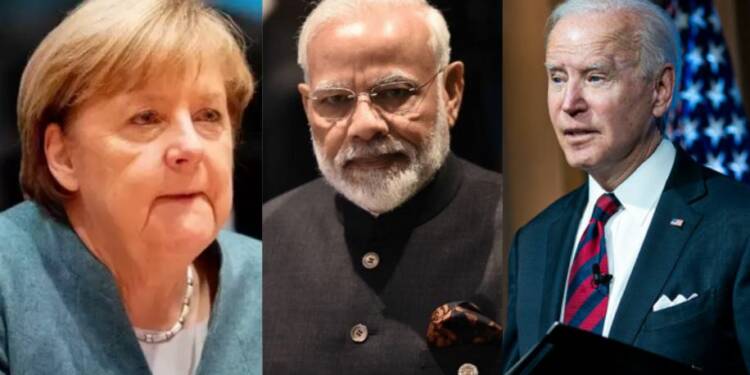We are living in a globalized world with exchange of goods, services, and information at an all-time high. However, the Modi government announced that the country would pursue the policy of “Atmanirbhar Bharat” in the post-pandemic world during the announcement of Covid-19 related economic package. At that time, many ‘experts’ of economy and international relations criticized the policy and termed it as ‘protectionist’, ‘back to import substitution’ and so on.
However, the recent action by the United States – blocked to export of raw material needed to manufacture vaccines under the Defence production act – shows that Atmanirbhar Bharat is the way forward in the post-Corona world. Not just the United States, but Germany also tried to capitalize on India’s problems and Germany chancellor Angela Merkel criticized the dependence of Europe on India pharmaceuticals.
On the question of restriction over export to India, State Department Spokesperson Ned Price said “We have a special responsibility to the American people.”
“It’s, of course, not only in our interest to see Americans vaccinated, it’s in the interests of the rest of the world to see Americans vaccinated,” he added.
Angela Merkel, the chancellor of Germany, was expressing sort of regret over ‘allowing’ India to become the pharmacy of the world. Angela Merkel said, “The truth is, we haven’t treated our pharmaceutical industry so well for many years…I am glad that we still have pharmaceutical production in Belgium, Holland, Germany.” Highlighting the issue of vaccine shortage, she said, “We now have a situation with India where, in connection with the emergency situation of the pandemic, we are worried whether the pharmaceutical products will still come to us.”
Furthermore, Merkel cautioned, “Of course, we have only allowed India to become such a large pharmaceutical producer in the first place, also from the European side, in the expectation that this should then also be complied with. If that is not the case now, we will have to rethink.”
The apathy of the leaders of the United States and Germany at a time when India is in desperate need, shows that no amount of global cooperation and multilateralism would work if the times are tough for India. The countries like the United States and those in Europe see India as a rising power – a threat to their hegemony in the global system. Therefore, whenever these countries get a chance to sabotage India’s interests, it would be the first action on their part.
India can become a global leader only and only by pursuing National Interest through Atmanirbhar Bharat Abhiyaan. The country distributed more than 36 crore doses of Covid vaccines around the world while countries like the United States – which promised global cooperation in these testing times – is putting the ‘America first’ agenda. The United States has manufactured enough vaccines to vaccinate whole citizens, but it is keeping the raw materials for emergencies instead of saving lives in other countries.
The Modi government has argued for the ‘Nation first’ approach from the day it assumed power – it was elected to power on the Nationalism wave – and now it must pursue National Interest in the true Chankyan sense. The Atmanirbhar Bharat Abhiyaan, which was started to make India self-sufficient in basic needs in the highly volatile world, must be pursued at the national agenda, because only through this India agenda the country could become the ‘Vishwa guru Bharat’ in the coming decade.























